9 Books That Can Help Prevent Family Fights During the Holidays
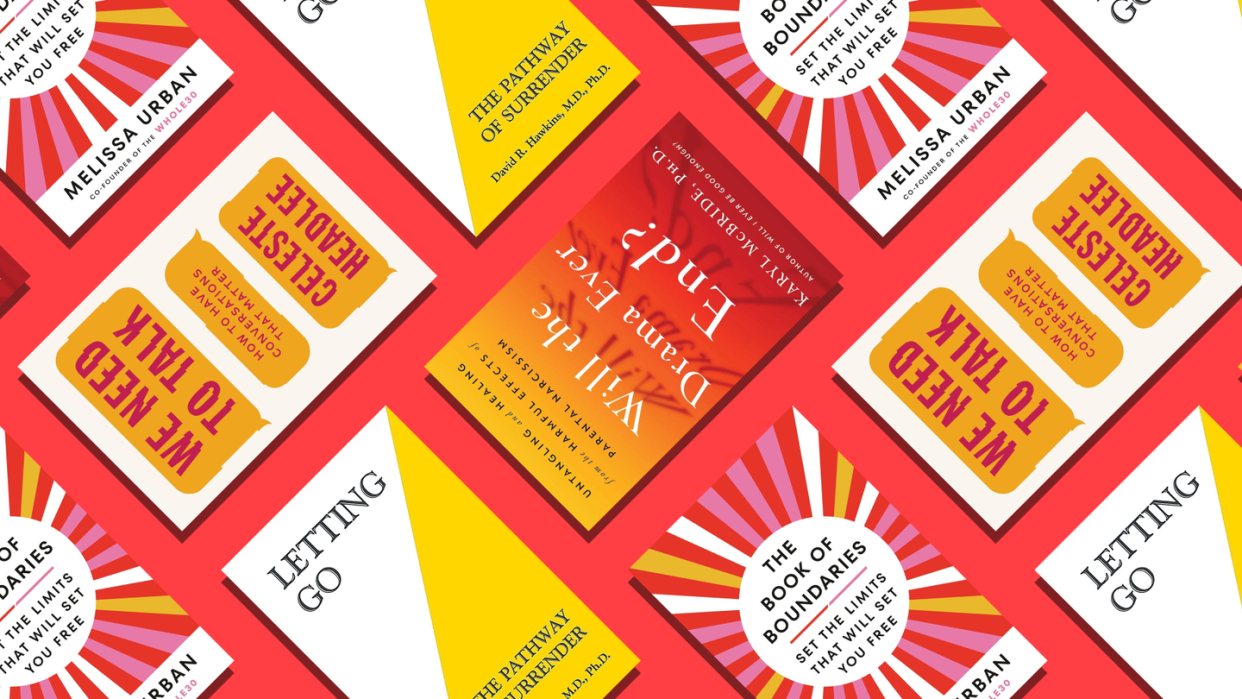
"Hearst Magazines and Yahoo may earn commission or revenue on some items through these links."
Want to show up at a family gathering cool, calm—and sane? The author of On Our Best Behavior: The Seven Deadly Sins and The Price Women Pay To Be Good shares what to read to break up arguments or, better yet, avoid them in the first place.
The fight over who gets to take home the stuffing, the fight over the size of the tree, the fight over who gets to light the last menorah candle, the fight over Grandma’s nutty politics (no, cats don’t get to vote), the fight over which version of the holiday photo will be sent to everyone you have ever met—all can be averted with a little pre-holiday reading. Here are the books to mentally prepare you for a few serene, conflict-free days with friends and family.
Want to show up at a family gathering cool, calm—and sane? The fight over who gets to take home the stuffing, the fight over the size of the tree, the fight over who gets to light the last menorah candle, the fight over Grandma’s nutty politics (no, cats don’t get to vote), the fight over which version of the holiday photo will be sent to everyone you have ever met—all can be averted with a little pre-holiday reading. The author of On Our Best Behavior shares what to read to break up arguments or, better yet, avoid them in the first place.
If a Hard Conversation with Dad Needs to Be Had: The Five Invitations, by Frank Ostaseski
Often, trips home—particularly with aging parents—require conversations about the future, conversations that can be hard, or triggering, or confronting, or undermining of any hope for autonomy. This is particularly difficult when much has gone unsaid, grudges are held, and apologies are owed. Frank Ostaseski, the cofounder of the Zen Hospice Project, has sat bedside with thousands of people as they’ve passed and has spent countless hours with aggrieved and grieving families, helping them toward some version of completion and closure. The Five Invitations is worth reading at any point in life: In fact, the invitations are applicable to any upsetting moment and appropriate meditations for every challenging encounter. They are: 1. Don’t wait. 2. Welcome everything, push away nothing. 3. Bring your whole self to the experience. 4. Find a place of rest in the middle of things. 5. Cultivate don’t know mind.
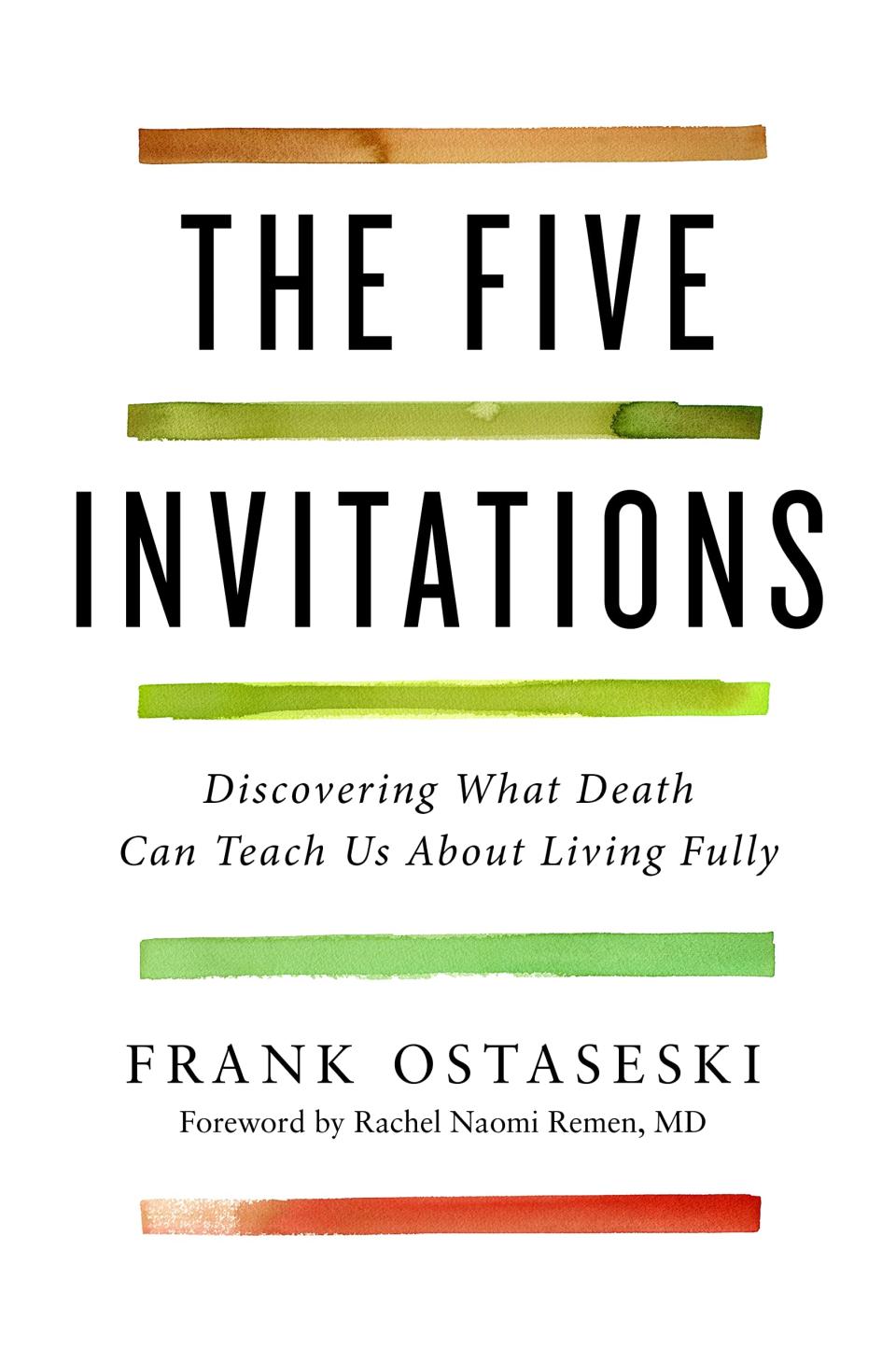
If a Hard Conversation with Dad Needs to Be Had: The Five Invitations, by Frank Ostaseski
amazon.com
$30.05
If You and Mom Just Can't Agree About a Vegan Twist on Turkey: Will the Drama Ever End?, by Karyl McBride, PhD
Karyl McBride’s 2008 book, Will I Ever Be Good Enough?, is a classic in the field, revolutionary at the time it was published because there was a perception at the time that narcissism was solely occurring in grandiose males. While it can feel tired to “blame the mother,” McBride gave voice and witness to a legion of daughters who were burdened by their mother’s narcissistic projections. McBride’s latest book, Will the Drama Ever End?, expands the conversation to include all children of narcissists. In a similar style, it’s filled with case studies and notes from her private practice that provide snapshots of how narcissism manifests in the family unit—and the long tail of its impact in terms of how children of narcissists come to understand and assert their own needs. Or not. The main thesis of the book is that while the specifics vary, narcissistic parents come in two flavors: engulfing or ignoring. As she writes, “The impact of these opposite styles is often the same. A child raised by an engulfing parent is so stifled that they cannot develop a healthy sense of autonomy or self, while the child raised by an ignoring parent is so busy working to gain attention that they, too, are left with a shaky or nonexistent sense of self.” In one fascinating section, McBride outlines the roles that family members typically play in the presence of a narcissistic parent, whether it’s the enabler (usually the spouse), the golden child, the scapegoat, or the lost child—with golden children counterintuitively generally faring the worst as adults. And finally, she rounds out the book with tools from her practice including everything from setting boundaries to breaking the pattern in your own parenting style. If you’re contending with narcissism in any family members this holiday season, this is a helpful primer, not only because it bears witness to the myriad ways narcissism presents but because McBride offers tactical advice.
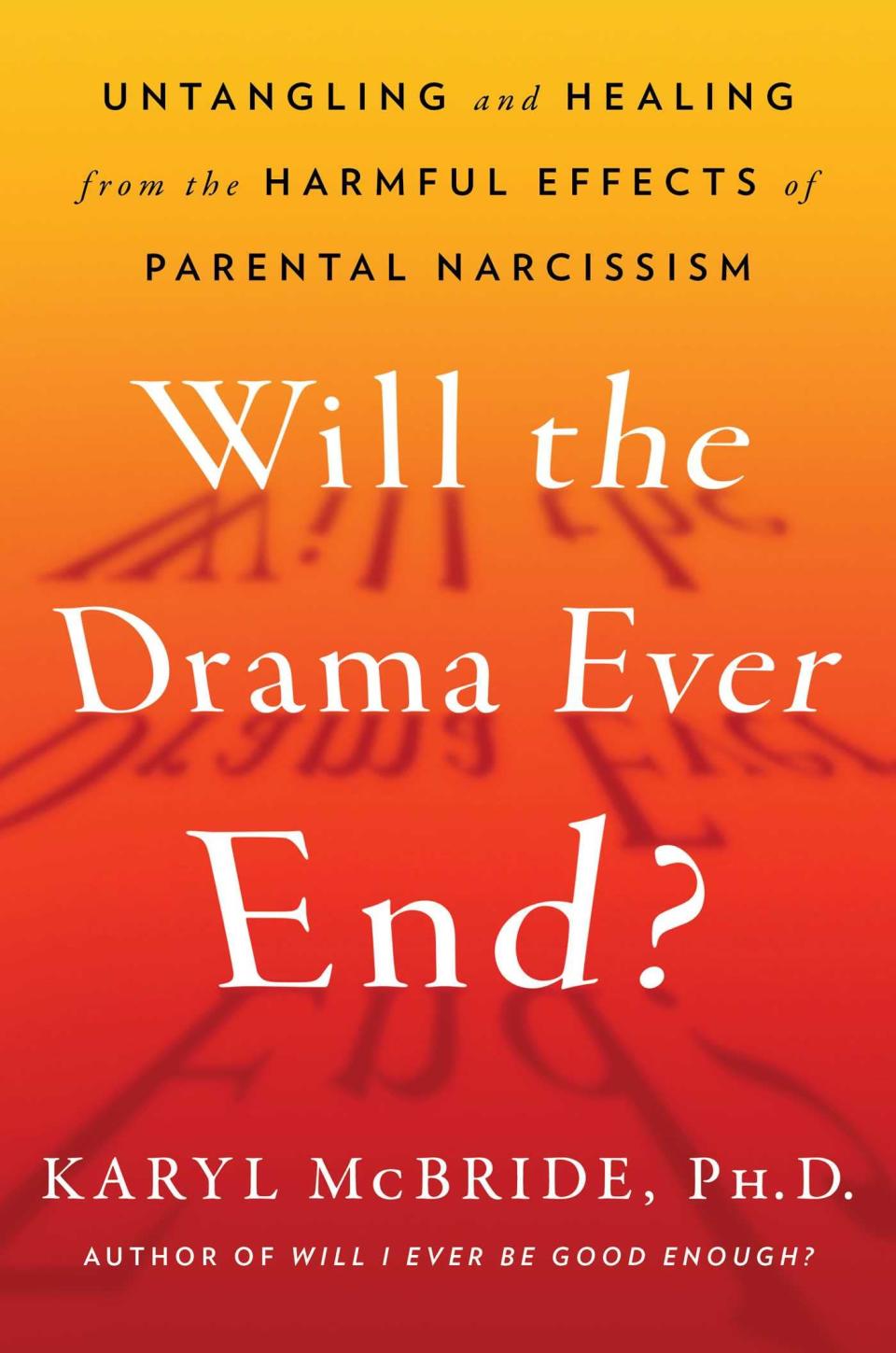
If You and Mom Just Can't Agree About a Vegan Twist on Turkey: Will the Drama Ever End?, by Karyl McBride, PhD
amazon.com
$18.39
If You're Filling Stockings with Your Co-Parent: The Book of Boundaries, by Melissa Urban
It can be hard enough to set boundaries with your parents, your spouse, and your kids, but what about setting boundaries with your co-parent post-divorce? Melissa Urban tackles these types of quandaries in her New York Times bestselling The Book of Boundaries, where she explores what happens when you find yourself outside of a marriage and yet still entwined as family, permanently stitched together because of kids. Add to this flammable mix extended family and you’re managing a lot of complex feelings. Urban, cofounder of Whole30, is divorced and co-parenting (and now remarried) and devotes a significant section of her boundary bible to navigating all types of tricky relationships, including those you share blood with, and those you do not. She tackles meddling in-laws, overbearing fathers, and exes you wish you could walk away from but can’t. She not only provides concrete advice and tips but also includes actual scripts to help you navigate in real time.
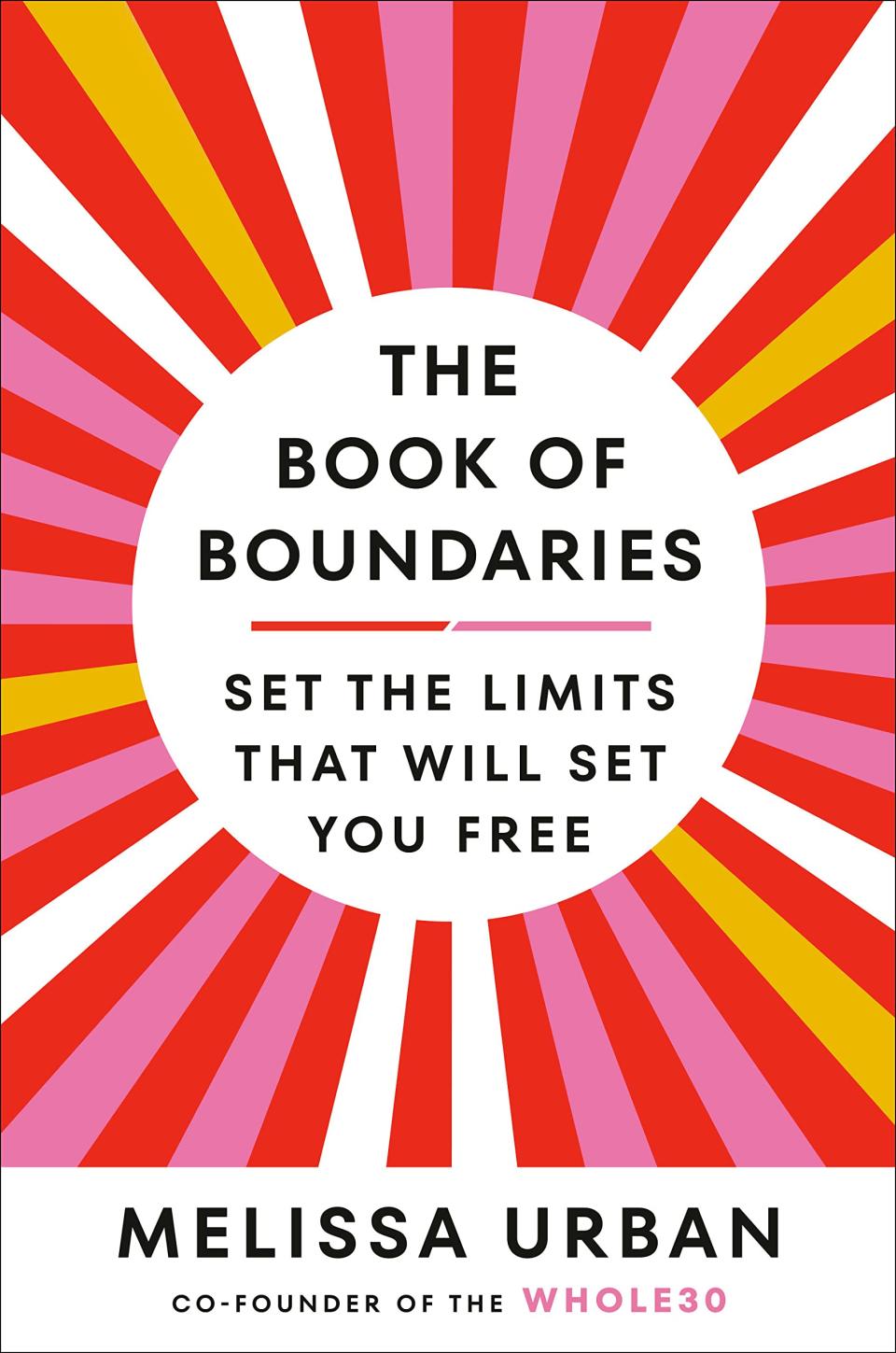
If You're Filling Stockings with Your Co-Parent: The Book of Boundaries, by Melissa Urban
amazon.com
$14.57
If You Feel Triggered at the Menorah Lighting and Don’t Know Why: The Origins of You, by Vienna Pharaon
In The Origins of You, family therapist Vienna Pharaon distills her wide experiences into simple practices around core wounds that typically start in early childhood. Similar to other psychological family systems, Pharaon practices “origin healing work” predicated on the belief that these core wounds get reopened, often because clients aren’t conscious that they have a core wound in the first place—they just know that something’s wrong because their behavior is repetitive and not serving them. She starts with the “presenting problem” and then works backward, looking for threads that might coordinate with wanting to feel worthy, wanting to belong, wanting to be prioritized, wanting to trust, and wanting to feel safe. Some readers might feel that their core wounds are obvious and accessible—in these pages they’ll feel validated and witnessed; those who don’t quite know can use the book to understand what might be at play.
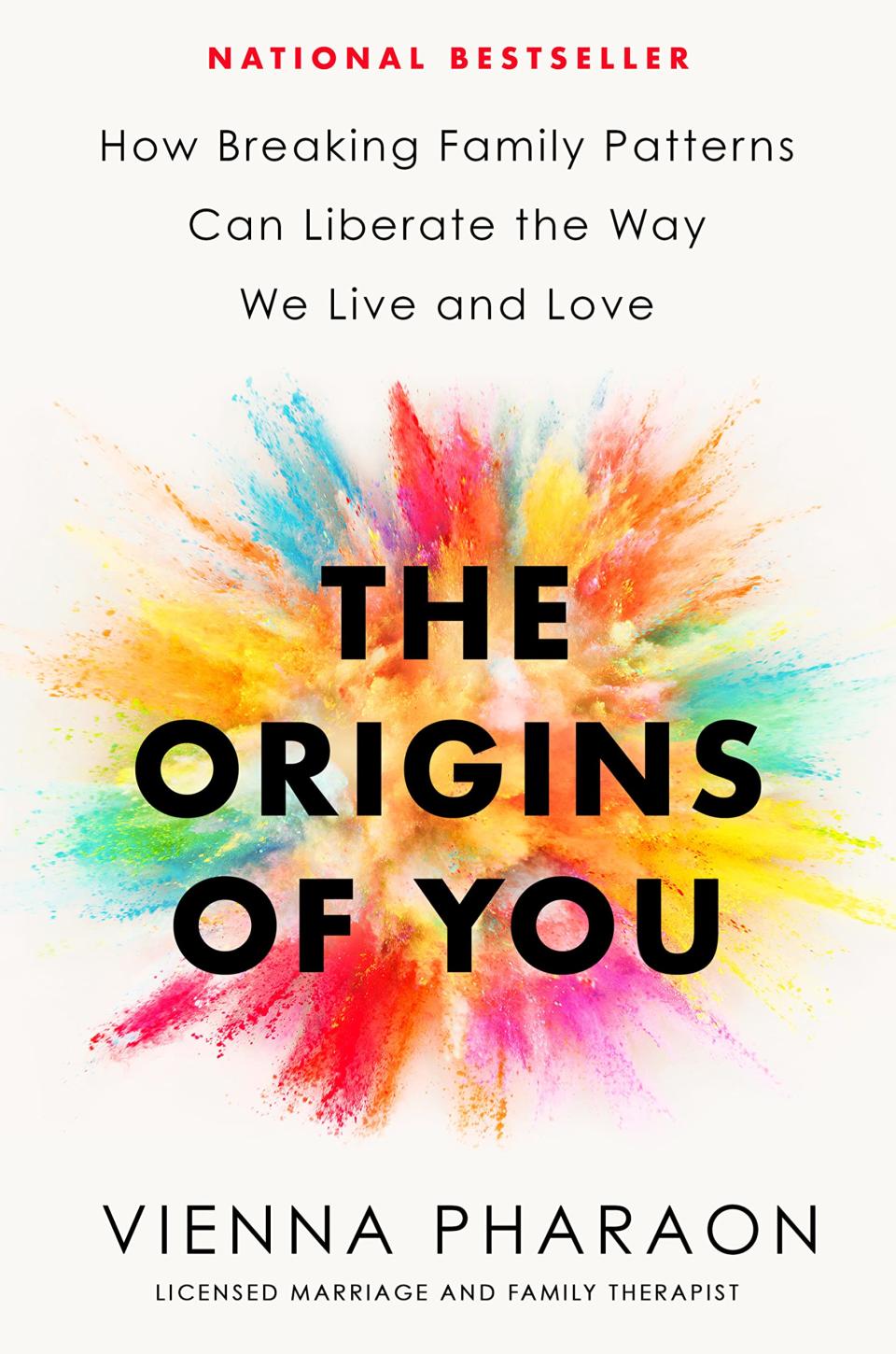
If You Feel Triggered at the Menorah Lighting and Don’t Know Why: The Origins of You, by Vienna Pharaon
amazon.com
$22.99
If You're Not Sure What to Share with Great-Aunt Jean: Drama Free, by Nedra Glover Tawwab
Unsurprisingly, therapist Nedra Glover Tawwab, who pushed a functional understanding of boundaries into the mainstream, is also an excellent source of wisdom when it comes to navigating difficult family dynamics. In Drama Free, her follow-up to the bestselling Set Boundaries, Find Peace, she defines other concepts that are often misused in our culture, like codependency and enmeshment. Along the way, she recontextualizes popular ideas, such as that “everyone deserves your vulnerability.” As she notes, there are times in complex family systems when it’s not safe to be vulnerable, particularly when it’s clear that the other party isn’t interested in listening to or affirming your point of view. Like all her work, Tawwab’s second book is ultimately a tactical guide—a way to both prepare for and process family encounters. As she writes: “In dysfunctional families, enmeshment allows everyone to stay the same, and when the status quo is challenged, the challenger becomes a scapegoat, rule breaker, and threat. A family is a cultural system. Sometimes, when individuals try to create new traditions, shift roles, or create boundaries, the system feels under attack.” In these pages, you’ll find training for these shifts, allowing you to head off to your relatives without abandoning yourself in the process.
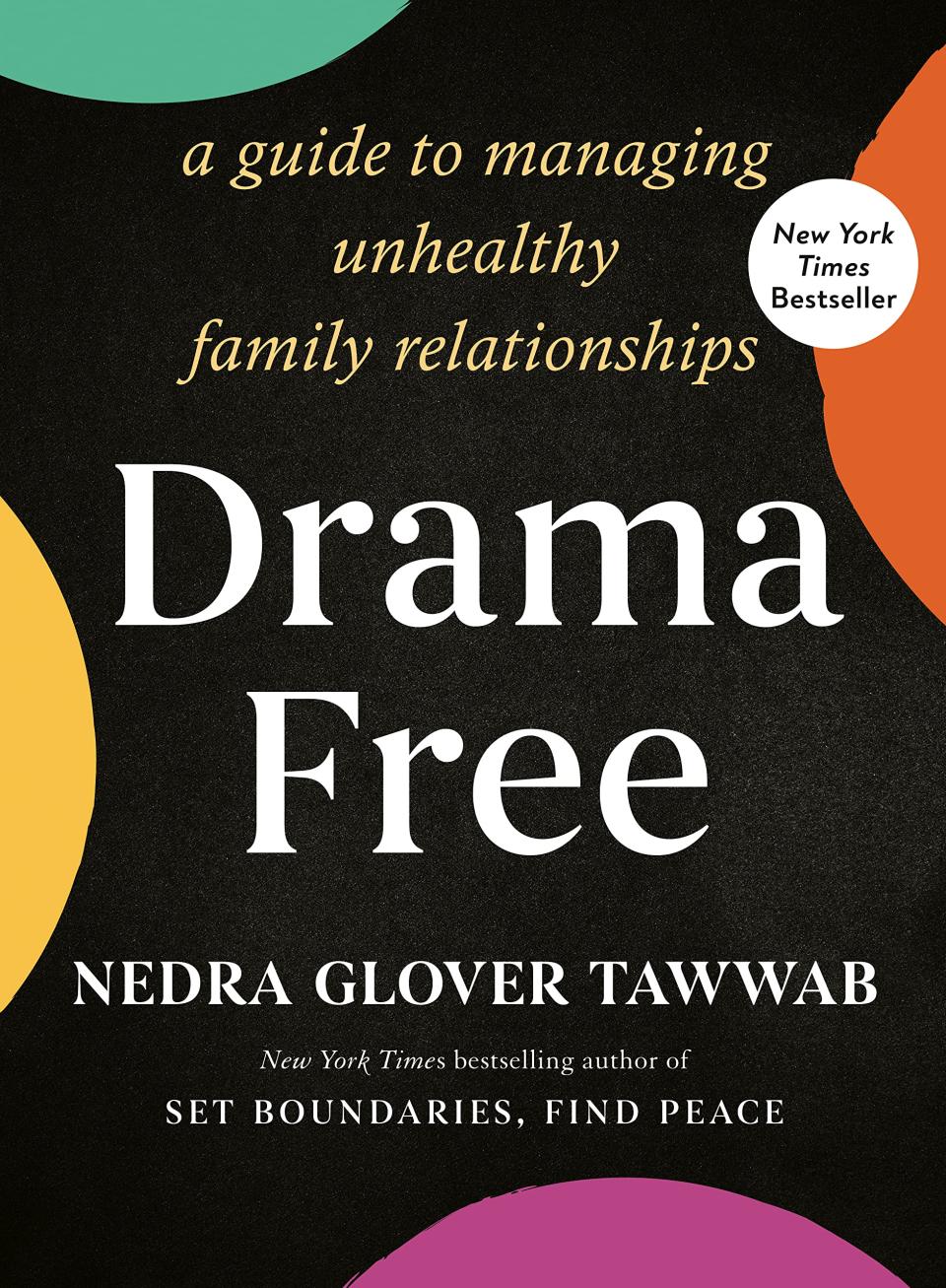
If You're Not Sure What to Share with Great-Aunt Jean: Drama Free, by Nedra Glover Tawwab
amazon.com
$15.29
If You Just Want to Check Out at 8 P.M. on New Year’s: Attuned, by Thomas Hübl
Spiritual teacher Thomas Hübl works with large groups around the world, helping people process unfelt and unhealed emotion. He does this by building a practice around staying in deep presence, even when it feels uncomfortable and difficult. His first book, Healing Collective Trauma, addresses exactly that, but in his newest book, Attuned, he describes how to use this same toolkit in a more personal way. “In the more challenging moments of modern life, our sense of awareness often becomes constricted and limited. In times of difficulty and stress, we tend to lose perception of the greater field as our awareness clusters tightly within us. We become compactly self-focused by default. As a result, we are less available; we lose access to those resources that allow us to feel with and for others. Whether we’re in the middle of difficult family or relationship disagreements or embroiled in the heat of workplace conflict, a sense of separation becomes heightened, and it is difficult to be present. This is not wrong; it is simply an evolutionary function that promotes survival—an adaptation to biological utility.” While Hübl doesn’t promise easy fixes or hacks, he does lay out a process for becoming more aware, a facility that serves everywhere, all the time.
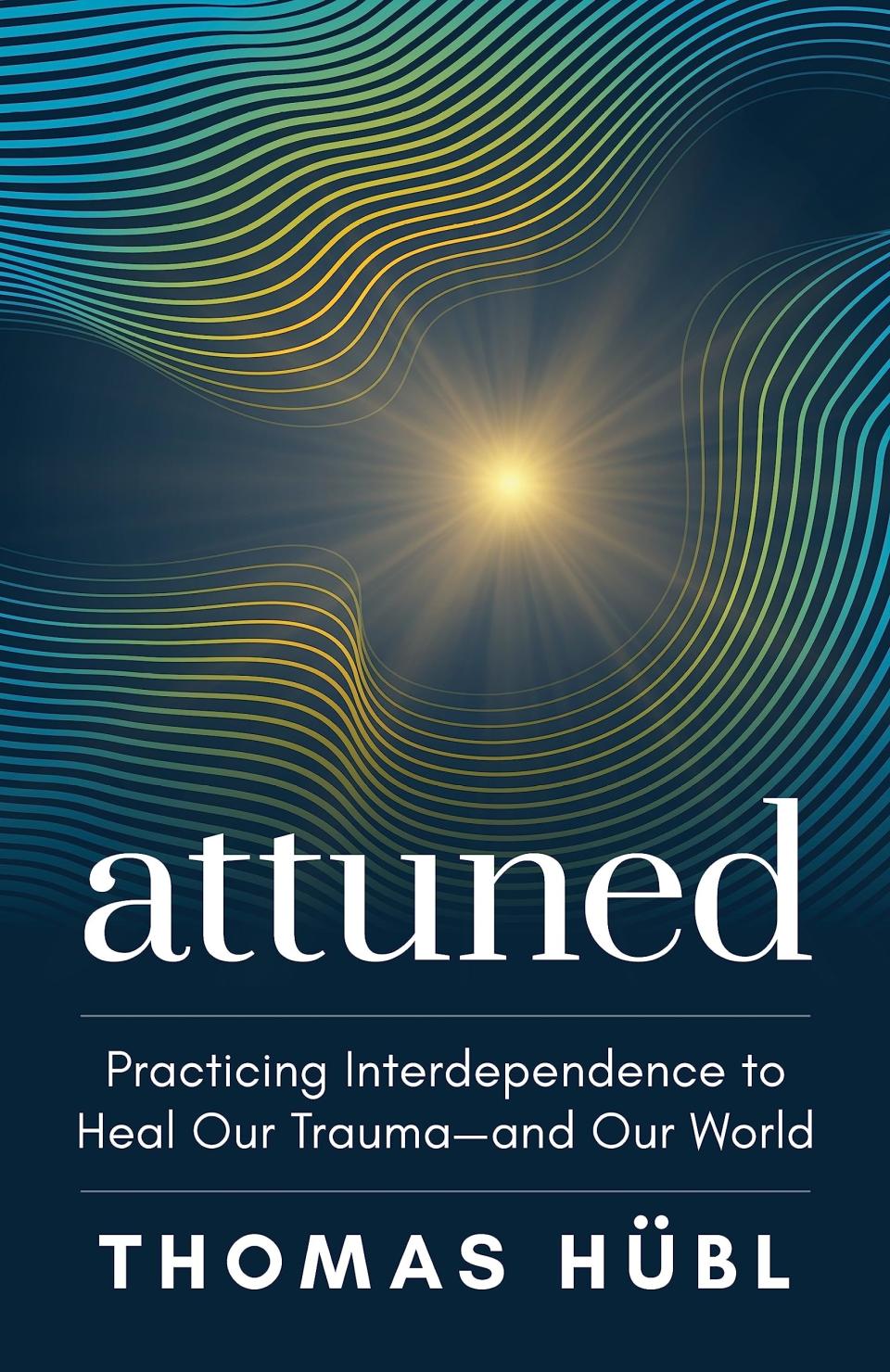
If You Just Want to Check Out at 8 P.M. on New Year’s: Attuned, by Thomas Hübl
amazon.com
$24.05
If Somebody at the Table Has Really Upsetting Ideas: We Need to Talk and Speaking of Race, both by Celeste Headlee
Longtime radio journalist Celeste Headlee’s voice might be familiar to many—she’s a sometimes soothing and always insightful guide to the morass of what it is to be alive today. She’s particularly excellent at hard conversations that might be full of land mines and triggers—conversations about race and racism, sex and sexism, and politics. Somehow, she manages to elucidate without blaming, to clarify without sidestepping. And in two of her books—We Need to Talk and Speaking of Race—she offers the skills she’s honed as an expert interviewer and conversationalist to us. A big part of this, as it were, is learning how to be an engaged listener, willing to have your mind changed. As she writes in Speaking of Race, “A conversation, it should be noted, is not a debate. A debate will not change someone’s opinions, no matter how devastating your statistics or eye-opening your data. And yet we often enter exchanges about race armed with our anger and our facts. In doing so, we engage in a practice that the Harvard Negotiation Project, a division of the school founded in 1979 to address issues of conflict resolution, calls ‘wrong-spotting.’ We already know how we feel about a person, we’re confident that we’re right, and we watch like a hawk for what they get wrong. When you are wrong-spotting, you will always feel vindicated because everyone makes mistakes or says things that seem wrong from your perspective.” This is a good primer for sitting down with in-laws or family members who might be on the opposite end of the spectrum, or hold views you find questionable or objectionable: Headlee is full of advice for engaging without inflaming, or ruining the holiday meal.
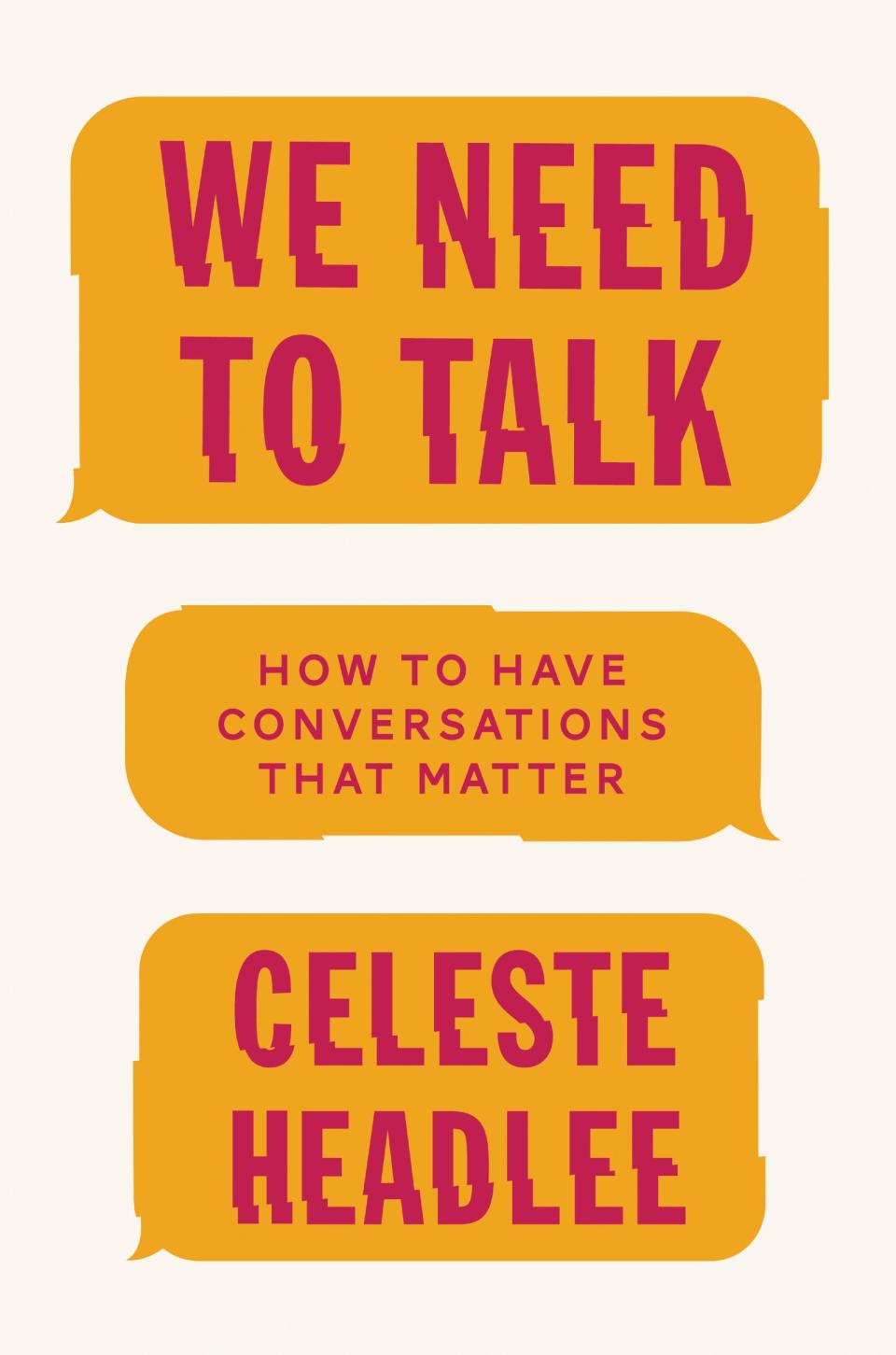
If Somebody at the Table Has Really Upsetting Ideas: We Need to Talk and Speaking of Race, both by Celeste Headlee
amazon.com
$22.89
If You're Determined Not to Freak Out Over Anything, Ever: Letting Go,by David R. Hawkins, MD, PhD
This much-loved tome from the late David R. Hawkins is a workout—it’s long and dense—but it’s also an essential resource guide that you can turn to again and again, particularly when emotions spike. As the title suggests, the focus is on letting go, specifically in the realm of relationships where you find yourself stuck in the same emotions. Hawkins urges us to examine situations for the truth of what they are, and to stop suppressing and repressing our unwanted emotions about said situations. As he writes, “It means simply to let the feeling be there and to focus on letting out the energy behind it. The first step is to allow yourself to have the feeling without resisting it, venting it, fearing it, condemning it, or moralizing about it. It means to drop judgment and to see that it is just a feeling. The technique is to be with the feeling and surrender all efforts to modify it in any way. Let go of wanting to resist the feeling. It is resistance that keeps the feeling going.” This isn’t a short book, and throughout he addresses a vast range of emotions, including grief, shame, and anger—all familiar to anyone who is struggling with difficult relationships. In Hawkins, the first step is taking a certain amount of responsibility—for your own emotions at least. And the first part is grappling with blame. As he writes, “One of the biggest blocks to overcome in getting out of depression and apathy is that of blame. Blame is a whole subject in itself. Looking into it is rewarding. To begin with, there are a lot of payoffs to blame. We get to be innocent; we get to enjoy self-pity; we get to be the martyr and the victim; and we get to be the recipients of sympathy.” As Hawkins then instructs, letting go of blame is the initial step toward healing. And it might be the hardest step of them all.
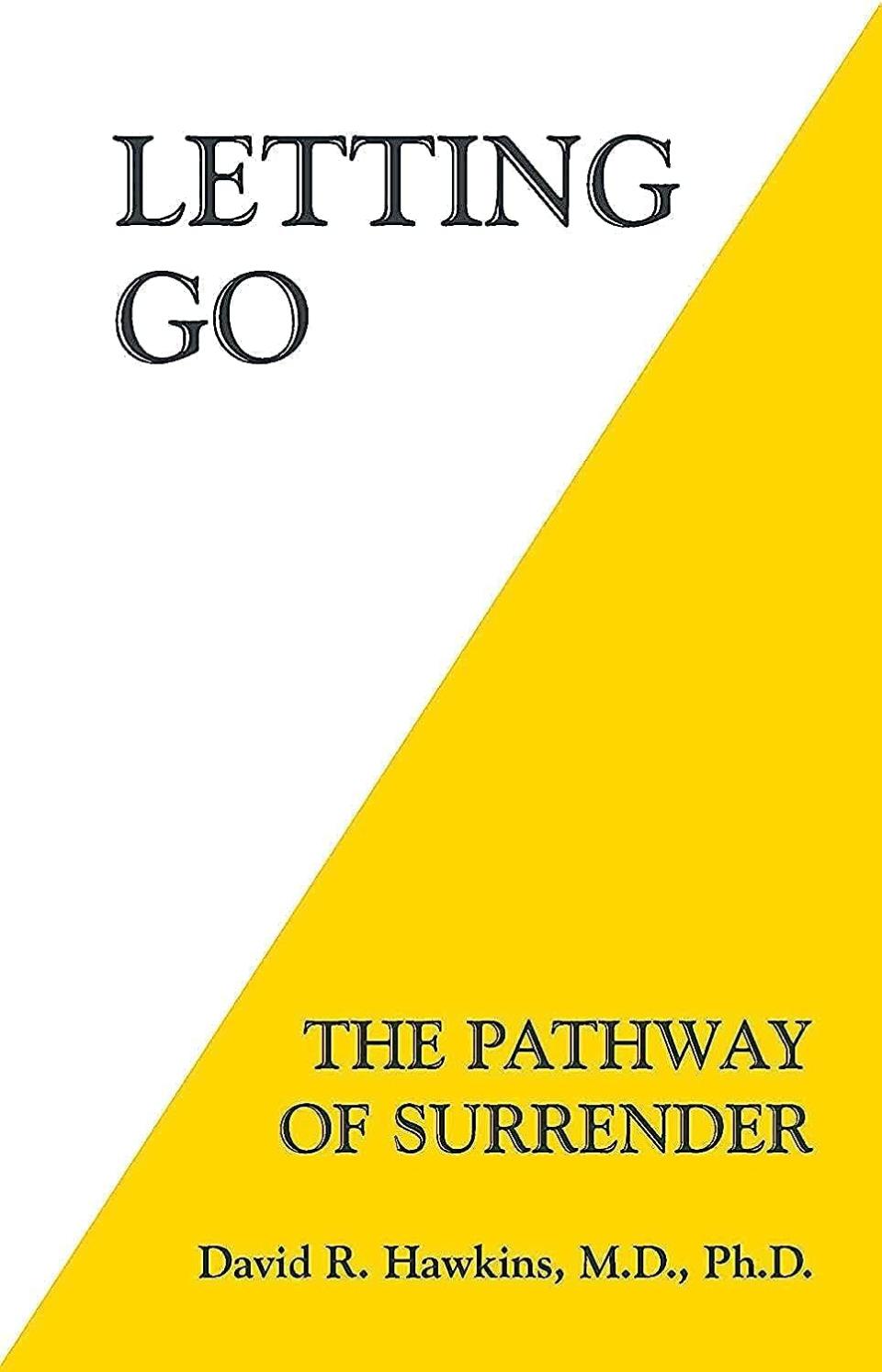
If You're Determined Not to Freak Out Over Anything, Ever: Letting Go,by David R. Hawkins, MD, PhD
amazon.com
$12.99
If You Were Raised in the Era of Benign Neglect: The Drama of the Gifted Child, by Alice Miller, PhD
This 1979 classic is short enough to take in on the flight to your family’s holiday meal. And even though The Drama of the Gifted Child is almost 50 years old, its themes are classic. It speaks to the vague ennui of anyone with a childhood that didn’t feel quite right but who grew up at a time when therapy was rarely pursued, diagnostic labels weren’t so easily tossed about, granted, or understood, and benign neglect and low-key abuse were socially accepted, if not condoned. Alice Miller focuses on children—now adults—who experienced unmet needs, writing: “These people have all developed the art of not experiencing feelings, for a child can experience her feelings only when there is somebody there who accepts her fully, understands her, and supports her. If that person is missing, if the child must risk losing the mother’s love or the love of her substitute in order to feel, then she will repress her emotions. She cannot even experience them secretly, ‘just for herself’; she will fail to experience them at all. But they will nevertheless stay in her body, in her cells, stored up as information that can be triggered by a later event.” In a bit of advice that’s salient for anyone who feels a parentified child, she also speaks to “big little kids,” or those who were conditioned for achievement and its reflective glory—as she asserts, to a child this feels like conditional love. As Miller writes, “It is one of the turning points in therapy when the patient comes to the emotional insight that all the love she has captured with so much effort and self-denial was not meant for her as she really was, that the admiration for her beauty and achievements was aimed at this beauty and these achievements and not at the child herself.” While terms like reparenting weren’t coined when this book came to print, in many ways it gestures toward that effort, which you’ll get to practice as you spend the holidays with your parents, who are likely still ill-equipped to meet all your needs.
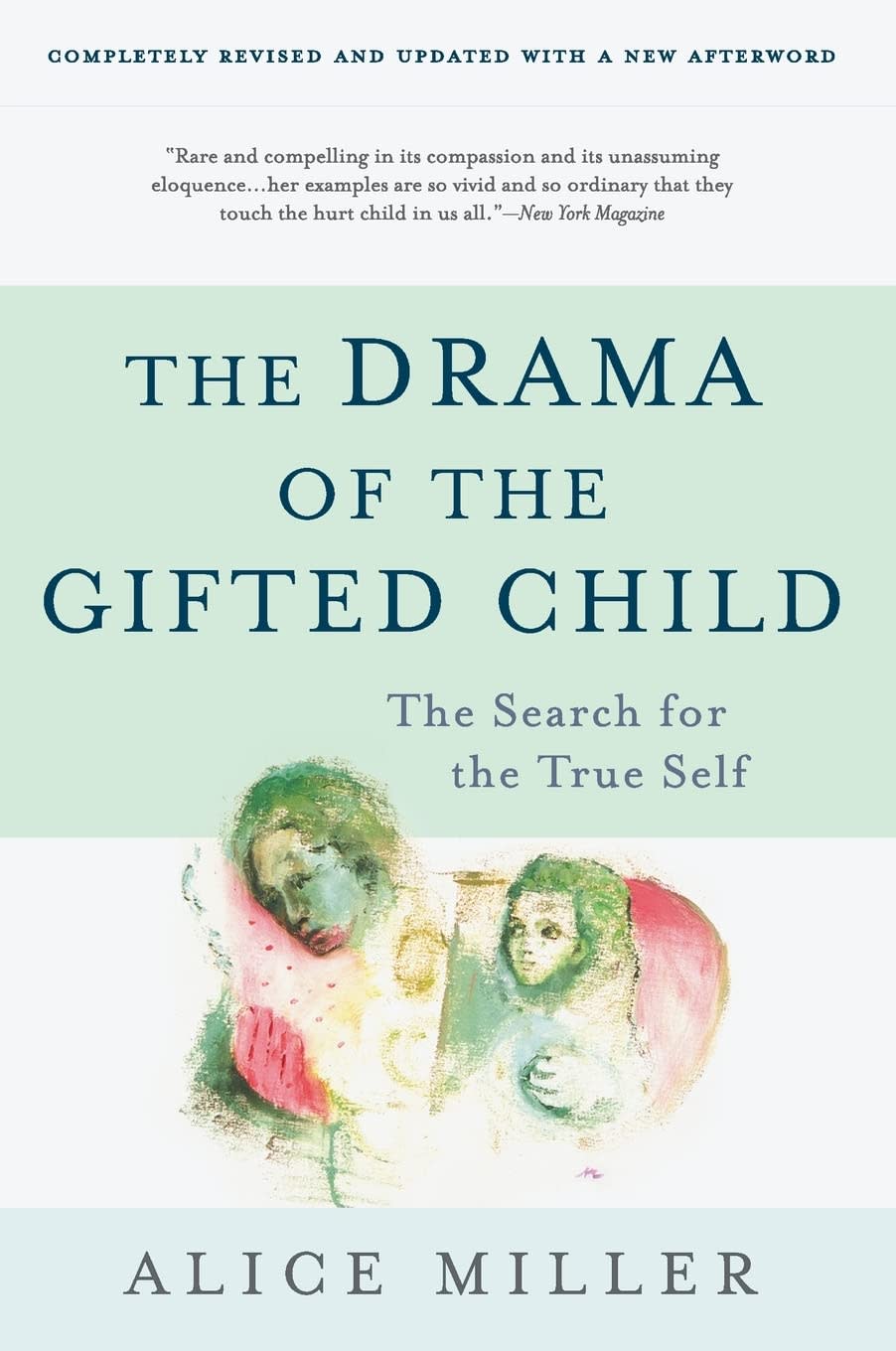
If You Were Raised in the Era of Benign Neglect: The Drama of the Gifted Child, by Alice Miller, PhD
amazon.com
$12.79
You Might Also Like

